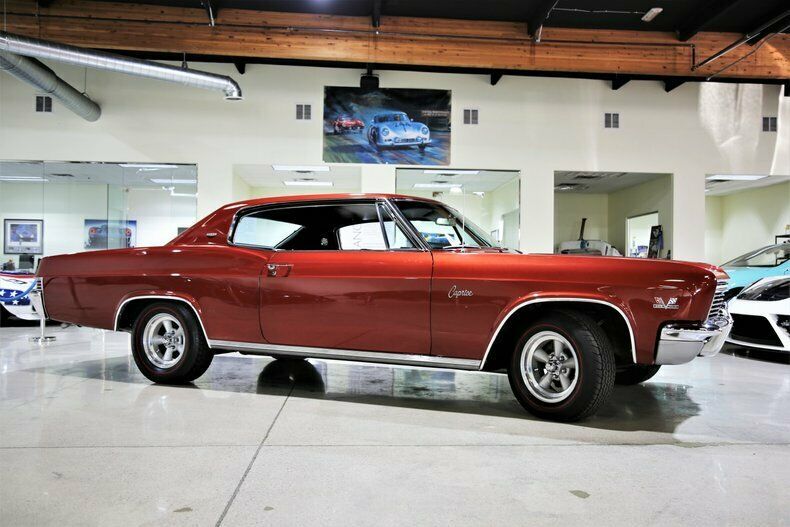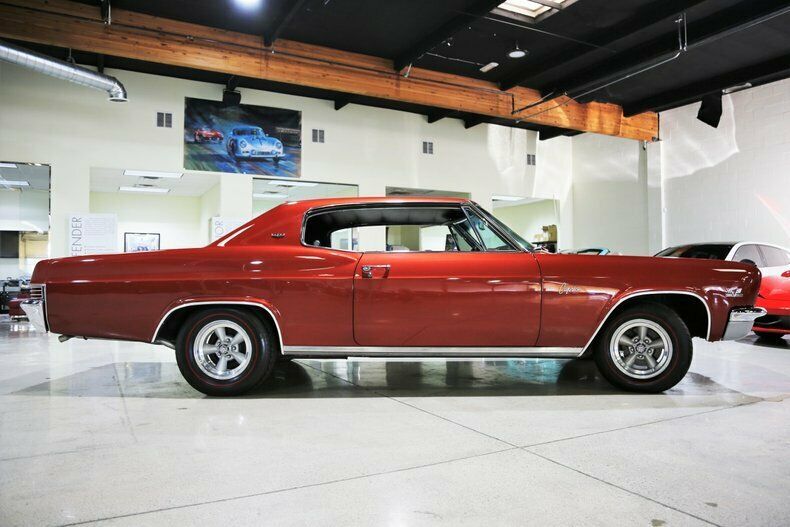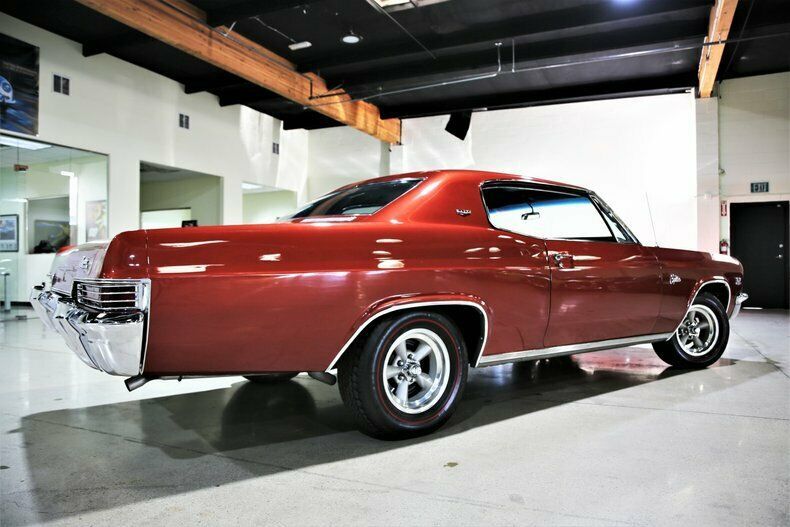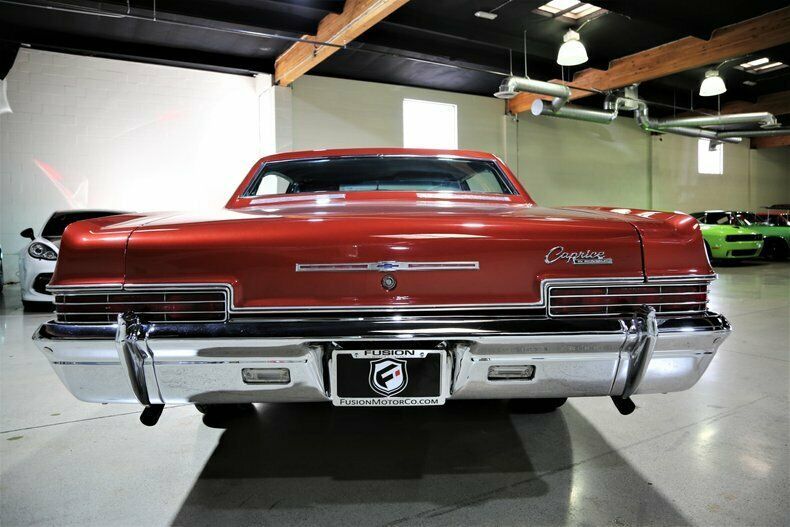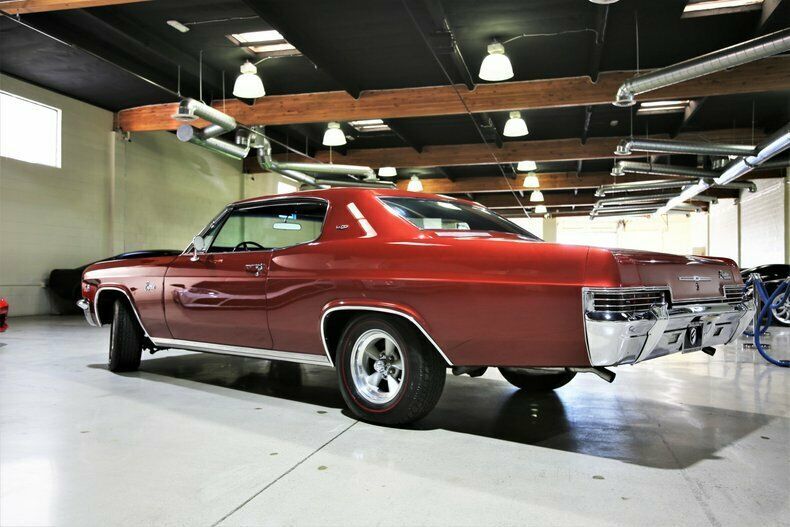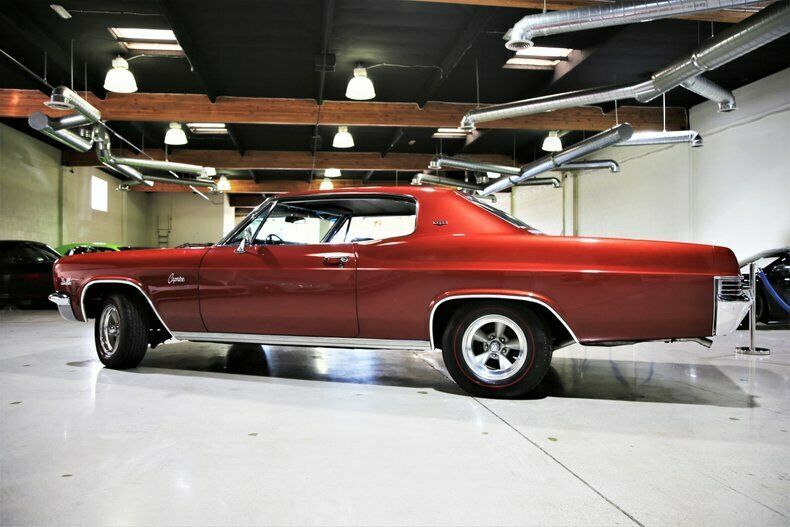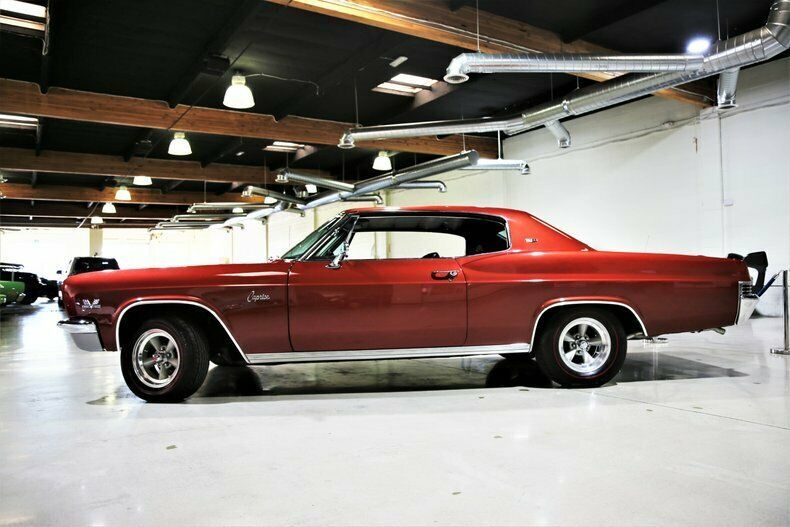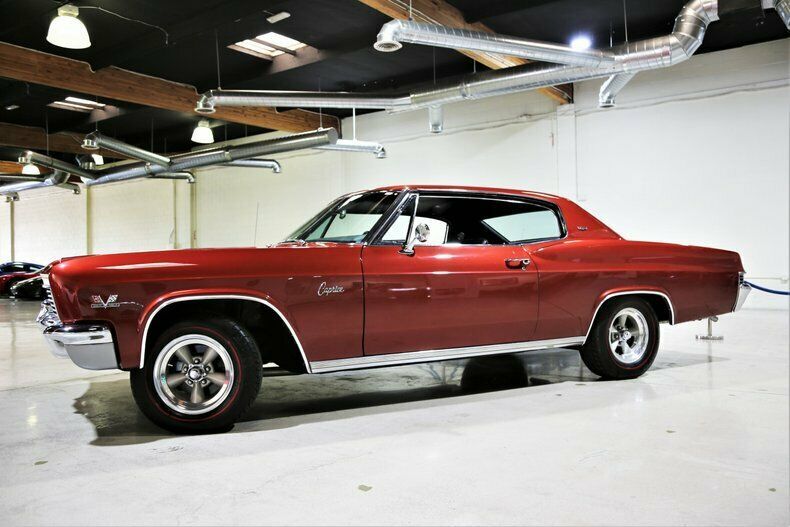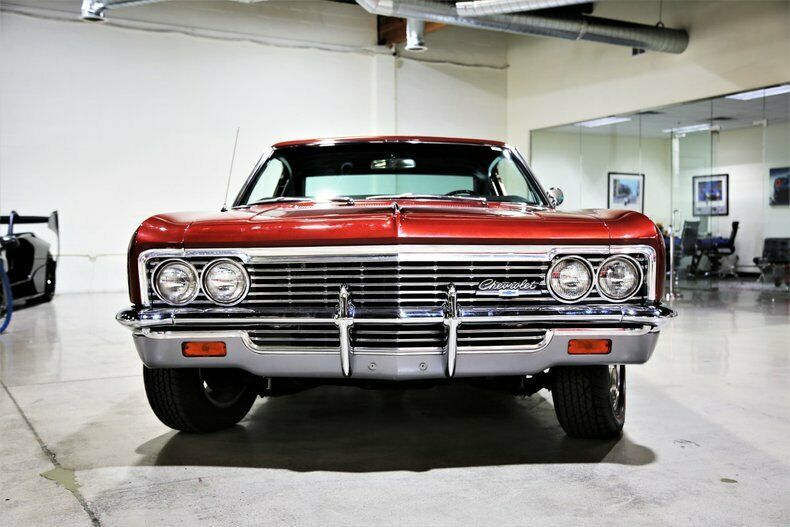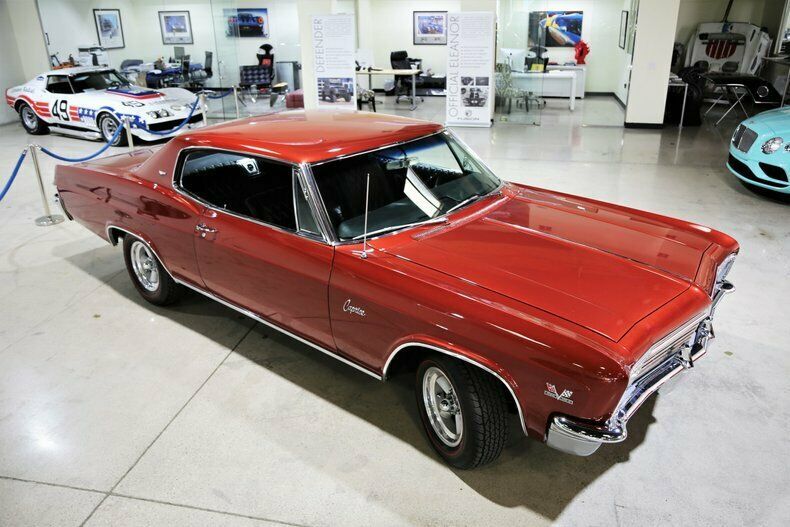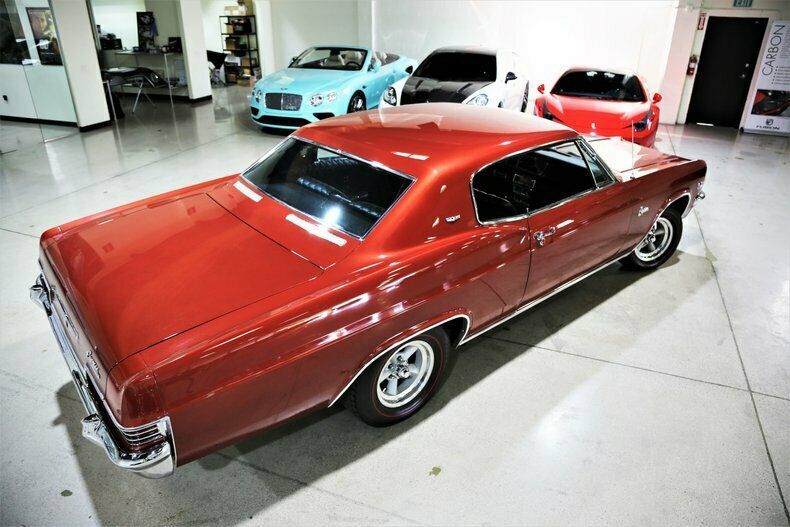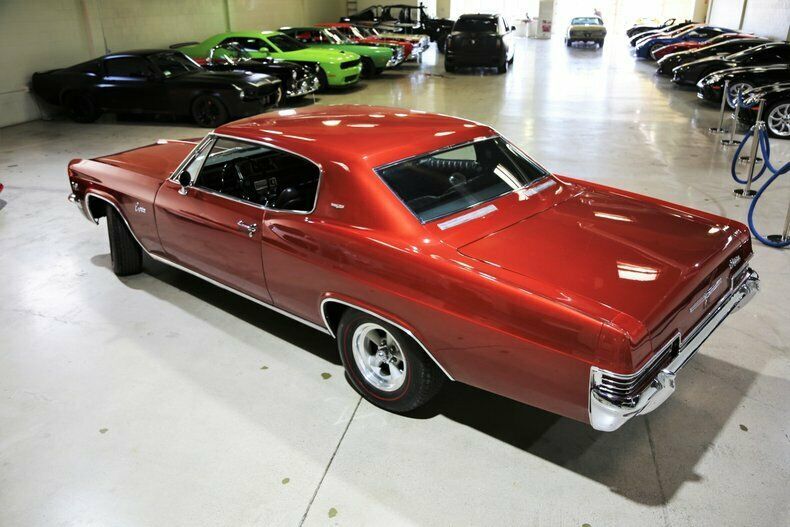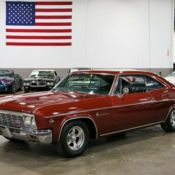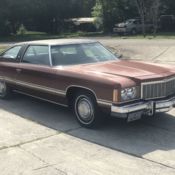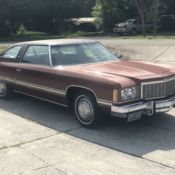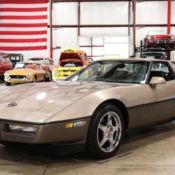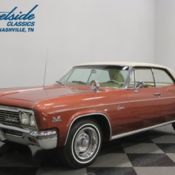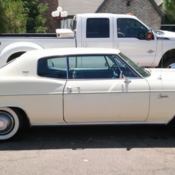1966 Chevrolet Caprice 63809 Miles Bronze Coupe 396 V8 3 Speed Automatic
Technical specifications of Chevrolet Caprice 1966
| Price: | US $42,250.00 |
|---|---|
| Condition: | Used |
| Make: | Chevrolet |
| Model: | Caprice |
| Type: | Coupe |
| Year: | 1966 |
| Mileage: | 63809 |
| VIN: | 166476L124874 |
| Color: | Bronze |
| Engine size: | 396 V8 |
| Power options: | -- |
| Fuel: | Gasoline |
| Transmission: | Automatic |
| Drive type: | -- |
| Interior color: | Black |
| Options: | -- |
| Vehicle Title: | -- |
| You are interested? | Contact the seller! |
Description
In 1966, the Caprice was the top dog for Chevrolet and this example was ordered with some of the most desirable options such as A/C, Tilt and Telescoping Steering Wheel, Power Steering, Power Brakes, 4-Way Power seat and Quadraphonic Stereo.Of Course the optional 396 V8 producing 325HP was ordered as well and the numbers matching big block is mated to the optional floor mounted 3-Speed Automatic.
Refinished in its original Aztec Bronze, this Caprice looks great and has been upgraded with Front Disc Brakes and Torq Thrust Wheels wrapped in BF Goodrich Red Line Radials.
Great lease rates and Financing also available on any of our inventory!
Buy Sell Trade Consignments Welcome!
Please email or call 1-818-773-8181
About the Caprice:
The Chevrolet Caprice is a full-sized automobile produced for the 1965 to 1996 model years. Full-size Chevrolet sales peaked in 1965 with over a million sold. It was the most popular American car in the sixties and early seventies, which, during its lifetime, included the Biscayne, Bel Air, and Impala.
Introduced in mid-1965 as a luxury trim package for the Impala four-door hardtop, Chevrolet offered a full line of Caprice models for the 1966 and subsequent model years, including a "formal hardtop" coupe and an Estate station wagon. The 1971 to 1976 models are the largest Chevrolets ever built. The downsized 1977 and restyled 1991 models were awarded Motor Trend Car of the Year. Production ended in 1996.
The Caprice name was coined by Bob Lund (Chevrolet's General Sales Manager) after a classy restaurant he frequented in New York City. Some say the car was named after Caprice Chapman, daughter of auto executive and influential Indy-car official James P. Chapman.
A Caprice Custom Sedan option package (RPO Z18) was offered on the 1965 Chevrolet Impala 4-door hardtop, adding $200 to the $2,742 price tag. The Caprice option included a heavier frame, suspension changes, black-accented front grille and rear trim panel with Caprice nameplate, slender body sill moldings, Fleur-de-lis roof quarter emblems, color-keyed bodyside stripes and Caprice hood and dash emblems. Full wheel covers were the same as that year's Super Sport, but the "SS" emblem in the center of the spinner was replaced by a Chevy bowtie.
Caprice gained series status for the 1966 model year and was positioned as the top-line full-size Chevrolet. It included a four-door hardtop, six- or nine-passenger station wagon, and a two-door hardtop with a squared-off formal roofline in contrast to the Impala/SS Sport Coupe's fastback roof styling. All four Caprice models were marketed as "Caprice Custom."
The Caprice Custom Estate, a new station wagon model with simulated woodgrain exterior trim was the first Chevrolet with such a design since its real woodie wagon was offered in 1954. All wagons included an all-vinyl upholstered two-row bench seat interior with an optional third rear-facing seat for two. The 283 cu in V8 engine was standard for Caprice models with the 325HP 396 cu in "Turbo Jet" V8 optional.
An automatic transmission, power steering, white sidewall tires, and a vinyl top were extra-cost options. Additionally, air conditioning, power windows, Cruise-Master speed control, power seats, and stereo radios were available. The standard transmission was a Synchro-Mesh three-speed manual, mounted on the steering column. This transmission remained standard until the spring of 1971, when the Turbo Hydra-Matic automatic became standard.
The 1966 Caprice featured a revised grille and front bumper, and new rectangular taillights which replaced the Chevrolet-traditional triple round taillights used on Impalas since 1958, with the exception of the 1959 model. Lenses and silver trim on Caprices differed slightly from the other full-sized models. Sedans and coupe models included luxurious cloth and vinyl bench seats with a folding center armrest in the rear seat. Optional on both was a "Strato bench" seat which combined bucket-style seat backs and a center armrest with a bench cushion for six-passenger seating. Caprices had unique standard wheel covers, although some of the optional wheels and wheel covers on full-sized models were optional.
New options included the "Comfortron" air conditioning system where the driver could set a constant year-round temperature. A "Tilt/Telescopic" steering wheel option could be adjusted vertically in six positions, as well as be telescoped further out from the steering column. Coupes could also be ordered with an all-vinyl interior featuring Strato bucket seats and center console with floor shifter, storage compartment, courtesy lighting, and full instrumentation at the front end of the console that was integrated with the lower instrument panel.
